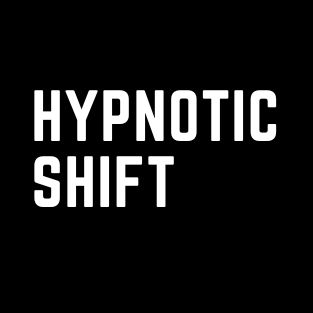What Is Hypnosis?
Myths, Science & How It Works

Hypnosis is a fascinating and widely misunderstood tool that has been used for centuries to tap into the power of your mind.
You'll often see it depicted in movies and television as a form of mind control, where a hypnotist swings a pocket watch and commands someone to act against their will.
In reality, hypnosis is a completely natural state of focused awareness that allows individuals to make profound changes in their thoughts, behaviors, and emotions. In fact, it's so natural you go into it twice a day involuntarily. Once when you're falling asleep (hypnagogia) and once when you're waking up (hypnopompia).
What Is Hypnosis Like? The Truth Behind the State
Hypnosis is best described as a state of deep relaxation and heightened focus. During hypnosis, your conscious mind becomes quieter, allowing access to your unconscious mind, where deeply rooted habits, beliefs, and emotions reside.
Contrary to common myths, hypnosis does not involve being asleep or unconscious. Instead, it is a state similar to daydreaming or becoming fully absorbed in a book or movie. In this state, individuals are more open to positive suggestions, which is why hypnosis is such a powerful tool for making lasting changes.
Whether the goal is to quit smoking, lose weight, reduce stress, or overcome phobias, hypnosis works by reshaping the subconscious mind’s patterns and responses.
Here are some of the more common myths
Myth: You lose control: Truth: You're always aware and in charge
Myth: It's only for weak-minded people: Truth: Hypnosis works best on strong focused minds
Myth: It's magic or mind-control: Truth: It's a clinically validated state of focused awareness.
How Hypnosis Works: 4 Key Stages
Hypnosis works by guiding individuals into a deeply relaxed state where they become more receptive to suggestions. The process typically involves four key stages:
Induction: This is the initial phase where the hypnotist helps the client relax and focus. Techniques such as guided imagery, progressive muscle relaxation, or controlled breathing are commonly used.
Deepening: Once the client is in a relaxed state, the hypnotist deepens the state allowing the unconscious mind to become more accessible. This phase helps you remain engaged while bypassing critical thought barriers.
Suggestion Phase: In this stage, positive and goal-oriented suggestions are introduced. These suggestions are designed to align with the client’s objectives, such as eliminating cravings for cigarettes, fostering healthier eating habits, or reducing pain perception.
Emerging: The hypnotist gently brings the client out of the trance, ensuring they feel refreshed and fully aware.

The Neuroscience of Hypnosis: What Research Shows
Scientific research has shown that hypnosis is not a form of trickery but a genuine neurological state with measurable effects on the brain.
Studies using brain imaging techniques, such as fMRI and EEG, have demonstrated that hypnosis can alter brain activity in areas related to attention, perception, and memory.
For example, research has found that hypnosis can:
Reduce the perception of pain by altering how the brain processes pain signals.
Improve focus and concentration by increasing activity in the prefrontal cortex.
Help individuals reframe negative thoughts
Break unhealthy habits by strengthening neural pathways associated with new behaviors.
What Hypnosis Is Used For: 6 Common Applications
Hypnosis is a versatile tool that can be used for a wide range of personal growth and therapeutic applications. Some of the most common areas where hypnosis is effective include:
Weight Loss & Healthy Eating Habits: Hypnosis helps you overcome emotional eating, reduce cravings, and develop healthier relationships with food.
Smoking Cessation: By addressing your unconscious it triggers and reinforcing a smoke-free identity, hypnosis is one of the most effective methods for quitting smoking.
Chronic Pain Management: Hypnosis has been shown to reduce pain perception and improve quality of life for those with conditions like fibromyalgia, arthritis, and migraines.
Anxiety & Stress Reduction: Hypnosis can reprogram the mind’s response to stress, promoting calmness and emotional resilience.
Overcoming Fears & Phobias: From fear of flying to fear of public speaking, hypnosis helps you desensitize and reframe your fears.
Improved Sleep: Hypnosis can help those struggling with insomnia by guiding the subconscious toward relaxation and restorative sleep patterns.
Is Hypnosis Right For You? Find Out
Hypnosis is safe, natural, and incredibly effective—and chances are, you’ve already experienced the hypnotic state without even realizing it.
Ready to take control, break through blocks, and create real change? Let’s talk. Book your free consultation with Hypnotic Shift today and see how powerful your mind really is.
At Hypnotic Shift in Cornelius, Huntersville and the Lake Norman area, we specialize in helping individuals harness the power of their subconscious mind to create real, lasting change. If you’re curious about how hypnosis can work for you, contact us today to learn more or book your first session!

